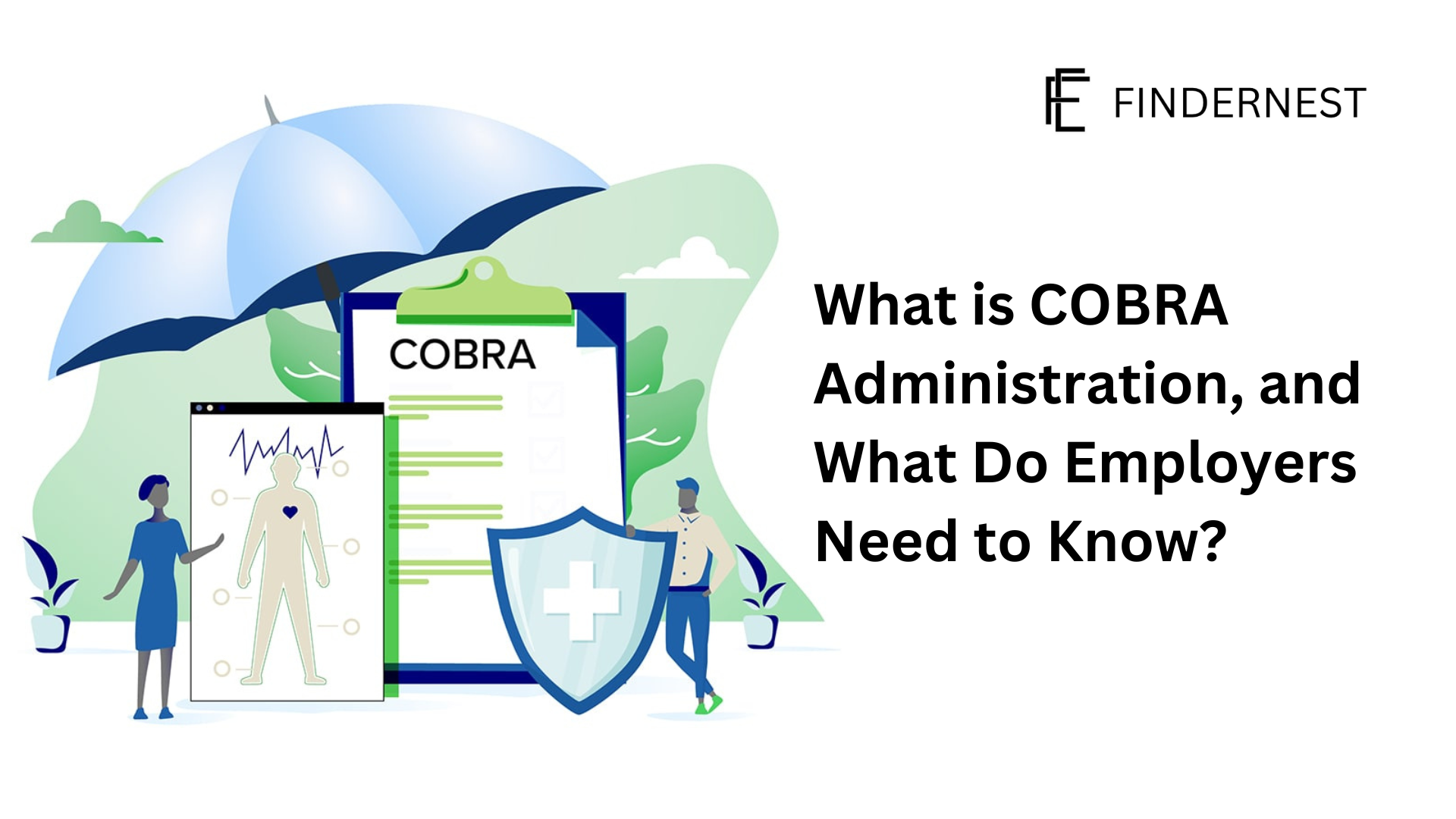Jobs | Staffing | Operations | Outsourcing | Governance
Employer Responsibilities Under COBRA: What You Need to Know
Read Time 7 mins | Written by: Praveen Gundala

Understanding the intricacies of COBRA is crucial for employers to ensure compliance and provide essential benefits to former employees.
Understanding COBRA: A Brief Overview
The Consolidated Omnibus Budget Reconciliation Act (COBRA) is a federal law that allows employees to continue their employer-sponsored health insurance for a limited period after a qualifying event that would normally result in the loss of coverage. Introduced in 1985, this legislation requires employers with 20 or more workers to offer continuation coverage to eligible individuals and their dependents when certain qualifying events take place. These events can include job loss (except due to gross misconduct) or a reduction in working hours that results in the loss of health insurance. For dependents, qualifying events might include the death of the covered employee, divorce or legal separation, loss of dependent status, or the covered employee becoming eligible for Medicare. COBRA ensures that employees and their families can temporarily maintain their health insurance benefits during these transitions, helping employers support their workforce even during difficult times. Enacted in 1985, the Consolidated Omnibus Budget Reconciliation Act (COBRA) functions as a federal rule that permits employees and their families to extend their group health benefits temporarily after certain qualifying events, such as job loss, reduced work hours, career changes, death, divorce, and other significant life events.
COBRA coverage is essential as it provides a safety net for individuals who might otherwise lose health insurance during transitional phases. Employers need to understand the key elements of COBRA to meet their obligations and help former employees maintain their coverage.
Navigating employee benefits can be daunting, especially given the increasing complexity of state and federal regulations. As an employer, you recognize that managing healthcare benefits is both crucial and complex, particularly when employees face life-altering events impacting their coverage needs. We acknowledge that balancing compliance with federal laws while ensuring employees feel secure in their benefits can be a formidable task. In this article, we are honing in on COBRA (Consolidated Omnibus Budget Reconciliation Act) and what employers need to know.
Eligibility Requirements for COBRA Coverage
COBRA applies to group health plans sponsored by employers with 20 or more employees on more than 50% of its typical business days in the previous calendar year. Both full- and part-time employees are counted to determine whether a plan is subject to COBRA.
To be eligible for COBRA coverage, an individual must have been enrolled in their employer's group health plan on the day before a qualifying event. Qualifying events for employees include voluntary or involuntary job loss (excluding for gross misconduct) and reduction in the number of hours worked. For spouses and dependents, qualifying events include the covered employee becoming eligible for Medicare, divorce or legal separation from the covered employee, the death of the covered employee, and loss of dependent child status under the plan.
Employers need to provide clear communication about these eligibility requirements and ensure that all employees understand their rights under COBRA. This includes providing timely notices and instructions on how to elect continuation coverage.
Employer Obligations and Compliance Requirements
Employers with 20 or more employees are generally required to offer COBRA coverage. One of the primary obligations is to provide a general notice to employees and their spouses at the start of the health plan coverage. Additionally, when a qualifying event occurs, employers must provide an election notice outlining the individual's right to continue coverage.
Employers must also keep meticulous records of all COBRA communications and transactions to ensure compliance. Failure to adhere to COBRA requirements can result in significant penalties, including fines and potential legal action from former employees.
5 Key Responsibilities of the Employer Under COBRA
Under the Consolidated Omnibus Budget Reconciliation Act (COBRA), employers are legally obligated to uphold specific responsibilities when administering COBRA benefits. These responsibilities protect eligible individuals' rights and ensure compliance with federal regulations. Failure to provide timely and accurate COBRA notifications to eligible individuals can result in potential legal liabilities and penalties.
Notification of COBRA Rights
Employers must promptly notify eligible individuals or their beneficiaries of their COBRA rights within a specified timeframe, usually 30 to 60 days, following a qualifying event such as termination of employment, reduction in work hours, or divorce.
Provision of Detailed Information
Employers must provide detailed and easily understandable information about the available health plan options, including plan descriptions, coverage details, premium costs, and election deadlines. This information must be provided in a manner that allows individuals to make informed decisions about their COBRA coverage.
Offering Continuation Coverage
Employers must offer continuation coverage under the same group health plan available to the individual before the qualifying event. The coverage must mirror active employees' benefits, limitations, and exclusions.
Collection and Remittance of COBRA Premiums
Employers are responsible for collecting COBRA premiums from beneficiaries and promptly remitting them to the health plan administrator. Premium payments must be processed and remitted according to the plan's terms and federal regulations.
Maintenance of Accurate Records
Employers must maintain accurate COBRA notifications, elections, and premium payment records. These records should be kept for at least six years and accessible in case of audits or inquiries by relevant authorities or beneficiaries.
By fulfilling these responsibilities, employers not only meet their legal obligations but also play a crucial role in ensuring that eligible individuals are aware of their rights under COBRA, have access to continued health coverage, and can make informed decisions about their healthcare. Non-compliance with COBRA regulations can lead to significant legal and financial consequences. However, it's important to remember that compliance is not just about avoiding these consequences. It's about protecting the rights of individuals and contributing to a healthier workforce.
Common Challenges and Solutions in COBRA Administration
One common challenge in COBRA administration is managing the timely distribution of notices. Employers can address this by using automated systems that track deadlines and send reminders. Another challenge is keeping track of payments from former employees. Implementing a reliable payment tracking system can help mitigate this issue.
Additionally, employers often struggle with understanding the complex regulations and staying updated on any changes. Partnering with a COBRA administration service or seeking legal counsel can provide much-needed expertise and ensure ongoing compliance.
Do I Need to Offer it To My Employees?
If you’re an employer with a group health plan with 20 or more employees working more than 50% of your typical business days in the previous calendar year, you must offer COBRA coverage. Both full and part-time employees are included in your count. If you're an employer who sponsors a group health insurance plan, and you had 20 or more employees working for you for more than half the typical working days in the previous year, you are legally required to offer COBRA coverage. This means that if an employee loses their job or experiences a reduction in their working hours, you have to give them the option to continue their health insurance coverage through your plan for a certain period of time, usually 18 or 36 months. This applies to both full-time and part-time employees.
Are There Exceptions?
Yes, there are exceptions to offering COBRA benefits. Employees who were not eligible for the group health plan before their employment ended or those who opted out of enrolling in the plan when given the opportunity may not be required to be offered COBRA. This could include employees still waiting for coverage or those who declined participation due to having alternative insurance options available.
Best Practices for Effective COBRA Management
Effective COBRA management begins with educating both HR staff and employees about COBRA requirements and processes. Regular training sessions and clear, accessible resources can help achieve this goal. Employers should also establish a comprehensive record-keeping system to document all COBRA-related activities.
Outsourcing COBRA administration to a specialized third-party administrator can alleviate the burden on HR departments and ensure that all compliance requirements are met accurately and timely. Regular audits and reviews of COBRA processes can further ensure that the employer remains compliant with the law.
Successful COBRA administration goes beyond checking boxes; it's a tangible way to demonstrate your commitment to your employees' well-being, even after their employment ends.
By implementing the strategies shared here, you can confidently tackle COBRA's intricacies and remain compliant while providing crucial assistance to your employees during times of change. Employers with essential knowledge about complex laws such as COBRA, ensure informed decisions that benefit both the organization and its employees.
Findernest's COBRA Administration services focus on providing comprehensive support for managing employee benefits, particularly in the context of the Consolidated Omnibus Budget Reconciliation Act (COBRA). This federal law allows employees and their families to continue health insurance coverage after employment ends or when certain life events occur. Here’s an overview of Findernest's COBRA Administration services:
1. Comprehensive COBRA Compliance
Findernest ensures that organizations comply with all COBRA regulations, helping employers navigate the complexities of the law. This includes:
- Notification Management: Timely and accurate notifications to eligible employees regarding their rights under COBRA.
- Enrollment Support: Assisting employees in understanding their options for continuing health coverage, ensuring they have all necessary information to make informed decisions.
2. Streamlined Administration Processes
Findernest provides a streamlined approach to COBRA administration, which includes:
- Automated Systems: Utilizing technology to automate enrollment processes and manage ongoing communications with participants.
- Data Management: Maintaining accurate records of eligible participants and their coverage status, ensuring compliance and reducing administrative burdens.
3. Dedicated Support Services
Findernest offers dedicated support for both employers and employees:
- Customer Service: A dedicated team to address inquiries from employees regarding their COBRA benefits, helping them navigate the process smoothly.
- Employer Resources: Providing employers with resources and guidance on managing COBRA responsibilities effectively.
4. Cost Management Solutions
By outsourcing COBRA administration to Findernest, organizations can reduce costs associated with managing these benefits internally. This includes:
- Efficiency Improvements: Streamlining processes to minimize administrative time and effort.
- Risk Mitigation: Reducing the risk of non-compliance penalties through expert management of COBRA requirements.
5. Integration with Other HR Services
Findernest’s COBRA administration services can be integrated with other human capital management solutions they offer, including:
- Recruitment and Staffing: Ensuring that all aspects of employee management are cohesive and aligned.
- Training and Development: Offering resources that help organizations maintain compliance while supporting employee transitions.
In summary, Findernest's COBRA Administration services provide a robust framework for managing health insurance continuation benefits, ensuring compliance while alleviating the administrative burden on employers. Their comprehensive approach combines technology, expert support, and integration with broader HR services, making them a valuable partner for organizations navigating the complexities of employee benefits management.
Learn how FindErnest is making a difference in the world of business
Praveen Gundala
Praveen Gundala, Founder and Chief Executive Officer of FindErnest, provides value-added information technology and innovative digital solutions that enhance client business performance, accelerate time-to-market, increase productivity, and improve customer service. FindErnest offers end-to-end solutions tailored to clients' specific needs. Our persuasive tone emphasizes our dedication to producing outstanding outcomes and our capacity to use talent and technology to propel business success. I have a strong interest in using cutting-edge technology and creative solutions to fulfill the constantly changing needs of businesses. In order to keep up with the latest developments, I am always looking for ways to improve my knowledge and abilities. Fast-paced work environments are my favorite because they allow me to use my drive and entrepreneurial spirit to produce amazing results. My outstanding leadership and communication abilities enable me to inspire and encourage my team and create a successful culture.

